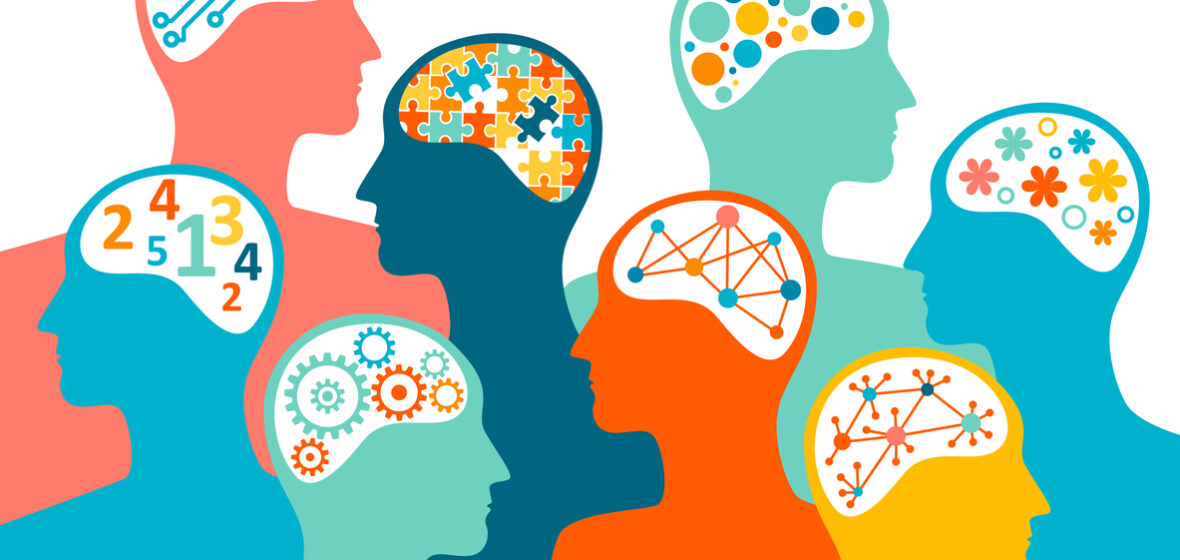There is growing agreement that supporting diversity in ways of thinking can benefit both lawyers and firms. The key is adopting an approach that’s affirming for all.
At the offices of Adelaide-based Your Legal Partner, the décor is subdued, bright colours are kept to a minimum, natural light is prioritised over artificial illumination, and radios and other noise-making devices are put away.
There is a breakout room tucked away from the hubbub of the office and sensory toys are on hand to relieve anxiety and overwhelm. Staff dress in business casual, suiting up only for court, and everyone on staff has been educated about what it means to be neurodivergent.
It’s all part of an approach that creates an accessible and inclusive environment for staff and clients alike, explains principal Maggie Yarak, whose two young sons are on the autism spectrum.
“If somebody is overwhelmed, if somebody has too much of a sensory overload, they can go into this breakout space. Our office has been designed specifically to provide comfort for people with sensory regulatory needs,” says Yarak, explaining that the firm is accredited as autism-friendly by Autism SA.
In law firms, there’s growing understanding that diversity of gender, race, religion and sexual orientation benefits business, and is simply good practice, but the same isn’t always said for diversity of the mind.
“I’ve not heard of any firm that has a focus on neurodiversity at all,” Yarak says. “I don’t think it’s high on the agenda. I feel like we’re very different, and we get that feedback a lot.”
Maintaining the status quo puts organisations at risk of missing out on vast talent pools, not to mention overlooking a key element of diversity, equity and inclusion policies. No two human brains are alike, and there has never been a better moment or need for law firms to embrace the contribution of neurodivergent practitioners to the profession.
Neurodivergence at work
Coined by Australian sociologist Judy Singer in the late 1990s, the term neurodiversity is the idea that there’s natural variation in how our brains work and how people understand and interact with the world.
People described as neurotypical have brains that function in a similar way to most of their peers. It’s estimated that up to 15 to 20 per cent of the world’s population exhibit variation in their brain development. These people can be described as neurodivergent, and they may have a neurodevelopmental condition like autism, attention deficit hyperactivity disorder (ADHD) or dyslexia.
Diagnoses of autism and ADHD are rising locally and around the world, at least in part due to increased awareness, but it’s difficult to gauge the prevalence among Australian lawyers.
“I’m contacted privately multiple times a week from lawyers around Australia, and even internationally, who have just recently found out they’re autistic or ADHD and are terrified to disclose. I totally get that because legal culture is still very traditional,” says Annie Crowe, a human rights lawyer who is autistic and has ADHD. She’s also the founder of NeuroAccess, a consultancy that helps build sustainable systems to support wellbeing among neurodivergent people.
Dr Danielle Hitch, an occupational therapist and senior research fellow at Deakin University’s Faculty of Health, says despite a shift in attitudes, stigma continues to be associated with neurodevelopmental conditions.
“Neurodiverse people have been in the legal profession since year dot,” says Dr Hitch, who has ADHD. “We’ve all likely worked with someone who’s neurodiverse – the odds will tell you that.
“But when it comes to ADHD, with more people being diagnosed, there can be this idea people are just jumping on the bandwagon and it’s fashionable, especially for women. There’s still an undertone that it’s not a real thing. On the autism side, there is more understanding, but there are also more stereotypes of what an autistic person can or can’t do.”
As such, neurodivergent people can have trouble gaining a foothold at work in environments where recruitment and management functions are largely staffed by neurotypical workers. This group is more like likely to experience unemployment and can be susceptible to mental health problems.
“If you have a neurodiverse outlook on life, or you’ve got a diagnosis, you are at greater risk of having mental health issues, especially if you’re working in a workplace that doesn’t accommodate it,” Dr Hitch says.
Next level diversity, equity and inclusion
For Amelia Martin*, an early career lawyer who works at a large law firm in Brisbane, sharing with her partner that she may be autistic was “a very difficult conversation”. “I’m waiting to get an appointment for a formal diagnosis, which is a frustratingly long wait,” she says. “At minimum, I identify as having certain neurodivergent traits. After I spoke to my partner, there was no follow-up – it was a one-and-done type thing.”
Martin says her firm doesn’t talk about neurodiversity, nor is there any role modelling of what it looks like to be a neurodivergent lawyer.
“There’s very much a preference for hiring like individuals to those who are already at the firm. It’s one of those things that the firm calls culture, but really just means we have a culture of one type of person, and we try and hire people who fit that one type of person.”
Steven Asnicar, CEO of Diversity Australia, a professional services firm specialising in diversity, equity and inclusion consulting and training, says his experience working with top-tier law firms shows these sorts of recruitment practices are widespread – and limiting.
“If you don’t hit the mark, if you don’t meet a particular standard or look or feel, then it’s hard for you to be accepted,” he says. “From a legal perspective, more and more people are leaving the industry because they don’t fit the mould and workplaces don’t accommodate unique individuals. Firms are losing great talent, but they don’t realise that’s what’s happening.”
Similar to how diversity, equity, and inclusion initiatives have brought attention to gender equality and LGBTQ+ communities, Martin says firms need to establish inclusive practices for neurodiversity starting at the highest levels of leadership.
“At my firm, there’s no training for working with neurodiversity. There’s no way for people who are neurodivergent, or not, to learn about it. And the partners don’t talk about it,” she says.
“If you can get the partners talking about it, then the people beneath them will start talking about it. And the juniors who might be a little bit more aware already can feel a lot more freedom to talk about it.”
Toward neuro-affirming workplaces
Along with restrictive recruitment practices, open-plan offices that contribute to sensory overload, compulsory in-person meetings, expectations around tidy workspaces, and the billable unit itself are just some of the challenges that neurodivergent lawyers working in a neurotypical environment may face.
“These challenges are not purely from being neurodivergent,” Crowe says. “They are from living in a world that’s set up for neuro-normative standards, for neurotypical people. If the world was made for autistic people, for example, then most autistic people would not be considered or consider themselves disabled, like I do.
“Neurodivergence needs to be thought of in the environmental and collective sense, because most accommodations made for neurodivergent people would help so many different people.
Rather than devising policies or making changes for specific people – not least because lawyers aren’t obliged to disclose that they are neurodivergent, and many people are unaware they may have autism or ADHD – she recommends firms adopt ‘universal design principles’ that are affirming for everyone.
“It’s about trying to create environments that help the most people,” Crowe says. “For some people, having non-fluorescent lighting would not make a difference in their day. But for others, it can literally be the difference between them being able to maintain full-time work and having a lot of medical bills.”
This approach can also include open and regular conversations about what each person, neurodivergent or otherwise, needs to perform at a high standard.
“If we have more regular conversations with everyone, then it wouldn’t feel so weird for someone to come out and say that light affects them,” Crowe says. “If everyone was allowed to express what helped them work best – some people prefer emails, some people prefer meetings, some people prefer phone calls – and there was a cultural shift in understanding that everyone’s brains are different, regardless of whether you qualify for a DSM-5 diagnosis or not, then it would be so much less stigmatising for those of us who do fall beyond the margins.”
Likewise, Dr Hitch says, focusing on output rather than method contributes to the creation of a ‘neuro-affirming environment’.
“Ask yourself: does it really matter if someone’s doing something in a different way? If the answer is no because they’re still getting it done, then don’t be worried about it. Not everyone has to do everything in a neurotypical way. Focus on the outcomes, rather than how they’re doing it,” she says.
The same goes for a behaviour called stimming. “If you’re under stimulated in a sensory way, people with autism might flap their hands or be rocking – it’s often quite subtle,” Dr Hitch says. “I take my shoes off and rub them on the carpet, and I twirl my hair, which might look slightly odd.
“But the question you’ve got to ask yourself is: does it matter that they’re doing that? Because sometimes people will see a stim and ask the other person to stop, which can be harmful to that person because they need to do that to keep their attention up or get the right sensory input.”
She says any inclusion training must be delivered by neurodivergent people with lived experience and backed up with a firm-wide policy or strategy committing to a neuro-affirming environment. “Training on its own is not going to do much because we come out feeling good and that we’re going to do all this great stuff – and then we forget.”
Generating a competitive advantage
It is also crucial to remember that embracing neurodiversity is more than a nice-to-have for ambitious firms. Like acceptance of diversity in other forms, it generates a significant competitive advantage.
Studies have shown, time and again, that diversity can help to strengthen organisations. Firms are better able to respond to challenges, recruit top talent and meet client needs. Fostering diversity of thought can boost innovation, creativity, and team morale.
“Having a neurodiverse outlook on life can give you a really unique perspective that other people don’t see,” Dr Hitch says. “People with ADHD are often quite creative because we’re not as bound to thinking in certain ways. The thing I contribute, which is probably down to my ADHD, is I see patterns between things that most people can’t see.”
Crowe says this can play out in law when practitioners are confronted with complex problems. “Let’s say we have a big legal problem and we’ve got all these great legal minds on it. But all of them think very similarly. They’ve all got very similar backgrounds, very similar upbringings, very similar thought patterns,” she says.
“You can understand why that wouldn’t be the best defence team – you want a team that can think out of the box, that can be creative, so you’ve got a robust argument. The more minds you have that have that difference, the stronger your case or law firm is going to be.”
Plus, neurodivergent employees tend to be loyal and dedicated, Dr Hitch says. “As a neurodiverse person, if you feel comfortable, happy and accepted in your workplace, you will go well beyond the extra mile for that workplace.”
Ultimately, Crowe says, “there’s a reason why diversity in general is becoming so much more spoken about. It’s not just because it’s the right thing to do, but also because we’re realising that the human race is stronger, and the legal profession is stronger, if we embrace diversity, neurodivergence or otherwise.”
*Name withheld at interviewee’s request




